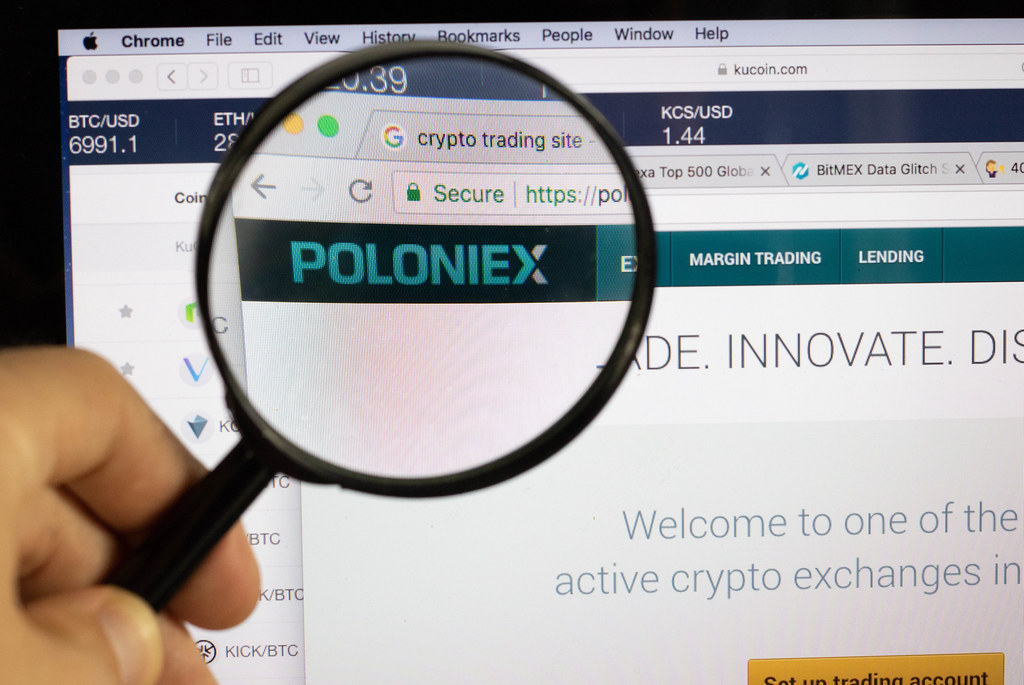The US is said to be the land of opportunity. It is, however, becoming very apparent that this opportunity is out of the reach of cryptocurrency startups. As an illustration, Circle has decided to move the majority of its exchange’s operations to Bermuda. The Goldman Sachs-backed blockchain startup is making a massive leap out of the tightly regulated US crypto industry environment and launching a subsidiary in the British island territory.
Circle has announced that it has received a Bermudan Digital Assets Business Act license for Poloniex. Poloniex, the Circle affiliated crypto exchange will now leverage its new regulatory status to serve non-US customers. Jeremy Allaire, Circle’s CEO has said that over 70 percent of the exchange’s users are not from the US. The established Bermudan subsidiary will on wards deal with that large customer base.
Circle: Bermuda’s Regulatory Environment Easier
The British Overseas Territory, “Class F (“Full”) DABA” license Poloniex has means that the exchange’s activities will be supervised by the Bermuda Monetary Authority (BMA). The legislation has been attracting crypto-based startups struggling under rising scrutiny from regulators to the island nation. Bermuda has envisioned booming new revenue streams from these startups and has assured lessened restrictive regulations in trades.
It has become increasingly harder for crypto exchanges to establish themselves in the States. Some have decided to cut off US citizens completely. Signs that Circle was also on its way out of the US showed in May when it’s crypto exchange geo-fenced some assets from its US customers.
Jeremy Allaire, while talking to CoinDesk said:
“The lack of regulatory frameworks significantly limits what can be offered to individuals and businesses in the US.”
The situation has been so bad that Circle, had to let go, 30 of its employees earlier in the year. The CEO says the job cuts were in line with the market but also attributed the move to the regulatory uncertainty in the States.
Most Startups Wary Of the US Market
The firm plans to hire more employees that will focus on global markets. “The project to establish a new international operations hub for our market, exchange and wallet services was a major project,” Allaire adds. The blockchain startup is now expanding its crypto-related offerings, which includes Circle Invest and Circle Trade.
Circle Invest gives the investor an array of 11 coins for trade. Circle Trade, on the other hand, is an OTC marketplace with a higher than $2 billion revenue in monthly turnover. Poloniex support over 100 different tokens and has recently acquired SeedInvest. The acquisition is a FINRA licensed alternative trading system. It is rumored that Circle could also be in the process of applying for a banking license.
The failure by US legislators to respond fast to the rising demand for crypto laws have put the country’s crypto industry at a competitive disadvantage. The need for a transparent regulatory framework, for instance, pushed Bitfinex’s services out of the US. Bittrex also barred US investors from accessing 32 tokens, and Bancor too excluded all its US customers from its web-based platform.
Binance, the world’s largest crypto exchange, stopped serving American investors and designed a US only exchange for them. Binance US will be compliant with the regulations but has fewer altcoins available for trade with BNB likely not on offer. Additionally, a dozen other platforms such as HitBTC, OKEx, Coineal, and Huobi Global have US customers blocked.

